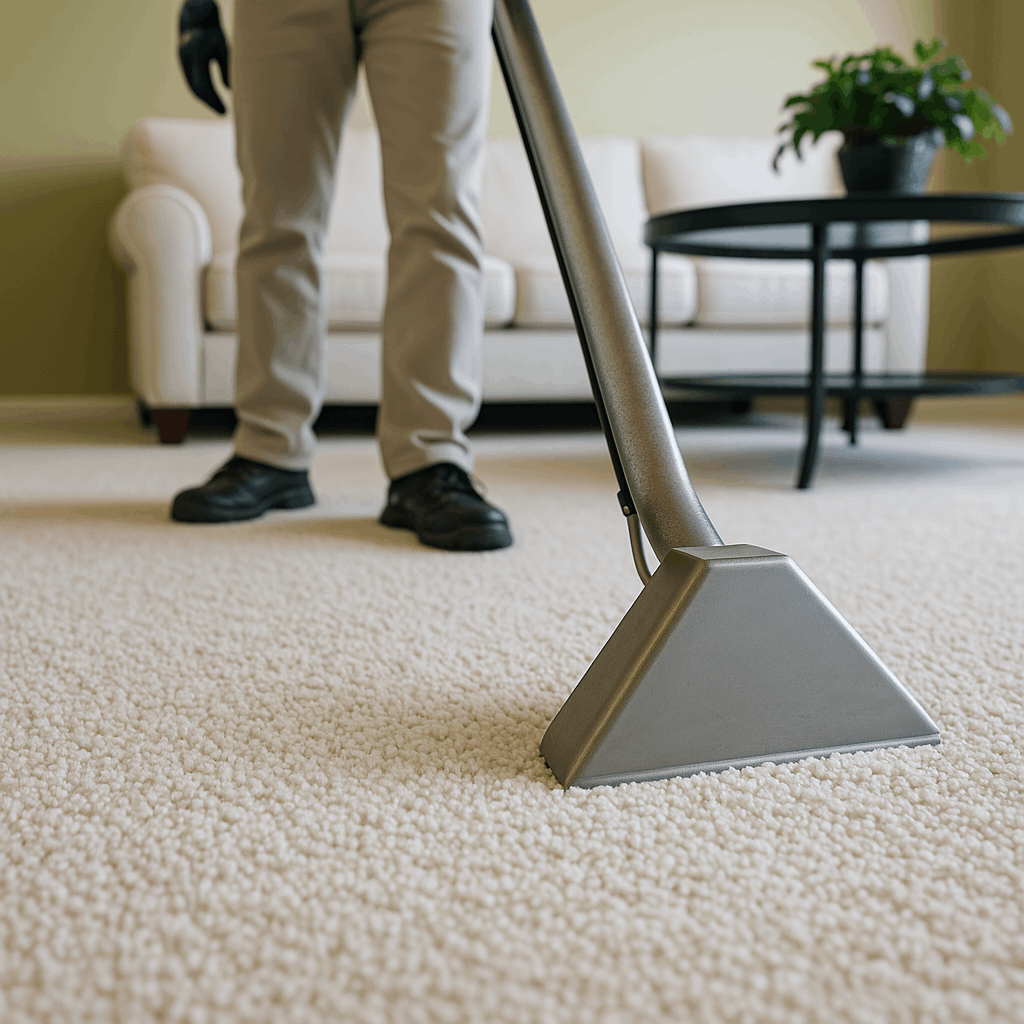FAQ
Q: After cleaning, how long will my carpets take to dry?
A: Drying time varies based on carpet density, type, room temperature, humidity, air movement, and cleaning method. Typically, carpets dry within 3-6 hours after steam cleaning and 1-2 hours with low-moisture methods. Topical treatments (e.g., soil repellents) may extend drying time to up to 24 hours. Proper cleaning techniques should never result in carpets taking days to dry. Carpetech guarantees faster drying, with high-velocity air movers available upon request.
Q: My carpets are wavy after steam cleaning. Are they ruined?
A: Not necessarily. Waviness can occur due to poor workmanship and overwetting, but it often results from jute-backed carpets, which naturally react this way when cleaned. The carpet should return to normal once fully dry.
Q: What are the differences between wet and dry cleaning?
A: Hot Water Extraction (HWE) (commonly called steam cleaning) uses hot water at high pressure, extracting deep soil with a powerful vacuum. Truck-mounted and some portable systems employ this method, which is the most recommended and thorough cleaning technique.
Dry Cleaning on the other hand, includes methods that use powders, crystals, solvents, or shampoos, which are applied to the carpet and vacuumed or buffed. Since there is no rinsing, residues may remain, leading to quicker re-soiling. However, some low-moisture methods (e.g., Ultra Low Moisture bonnet rotaries) provide excellent agitation and are effective for routine maintenance on low piles and commercial common areas where fast drying is paramount.
Q: What method does Carpetech use?
A: We offer both Ultra Low Moisture and HWE cleaning, depending on the client's needs. Methods include ULM Encapsulation Bonnet Rotaries, HydraMaster RDM, truck-mounted HWE, and portable HWE systems. Our technician determines the best approach based on the carpet type and condition.
Q: Why not rent a machine at the supermarket?
A: While you can, we don’t recommend it. Rental machines are underpowered and cumbersome. Many users unknowingly leave residue due to improper cleaning, which leads to faster re-soiling and fabric damage.
Q: I have my own carpet-cleaning machine. Do I still need professional cleaning?
A: Yes! Personal machines work for quick spot clean-ups but lack the power for deep cleaning. Many owners inadvertently contribute to faster re-soiling by using too much soap, failing to rinse properly, or over wetting carpets, leading to premature wear and indoor air pollution. Professional cleaning is the best way to maintain long-term carpet health.
Q: Are Carpetech’s products environmentally friendly?
A: Yes! Carpetech was the first to promote eco-friendly practices in our service area. Our suppliers now focus more on safer products, and regular professional cleaning improves indoor air quality. Carpetech continues to advocate for sustainable cleaning solutions.
Q: Do carpet protectors and soil repellents really work?
A: Yes, but quality matters! Insist on trusted brand names for the best protection. Well-formulated carpet protectors reduce soiling, prevent permanent stains, and extend the longevity of your investment.
Q: How often should I have my carpet or upholstery professionally cleaned?
A: It depends on traffic and household needs. Homes with children or pets may need cleaning every 3-4 months. Those with allergies should clean as frequently as possible. At minimum, carpets should be professionally cleaned at least once per year.
Q: How can I keep my carpets and upholstery clean between professional cleanings?
A: Vacuum regularly using a HEPA-filtered vacuum cleaner. Clean entranceways frequently to prevent tracked-in dirt. Spot-clean spills immediately to prevent permanent staining. Apply a fibre-protecting treatment for long-term soil resistance.
Q: My carpets were professionally cleaned, but there’s still an odour. How do I get rid of it?
A: Odours should naturally subside within a day or two after cleaning. Ventilation is essential—avoid keeping windows closed! However, persistent odours (e.g., pet urine, mildew, smoke) require specific treatments. In severe cases, under-pad replacement, floor sealing, and wall cleaning may be necessary mitigate the issue.
Q: I had my carpets professionally cleaned, but the stains returned or weren’t removed. Why?
A: Some stains—especially food and drink tannins—may reappear after drying and require additional treatment. If a pre-existing spot wasn’t removed, it may be permanent or require specialized spot cleaning techniques. If a new spot appears post-cleaning, Carpetech™ provides a free pH adjustment within the warranty period. Check your AfterCare™ instructions.
Q: What is the difference between a spot and a stain?
A: A spot refers to removable soil that can be cleaned with regular methods. A stain however, is permanent or requires specialized treatment to remove.
Q: Do you still offer housekeeping services?
A: No, CRS Housekeeping, a division of Carpetech Restoration Services, closed indefinitely in 2020.
Q: I’m buying new carpet. What do you recommend?
A: Consider the many types of textile, and styles. Don’t let price dictate your choice alone! Do your research before purchasing, as different fabrics offer varying durability and maintenance needs. Read or Textile Pros and Cons
here.

